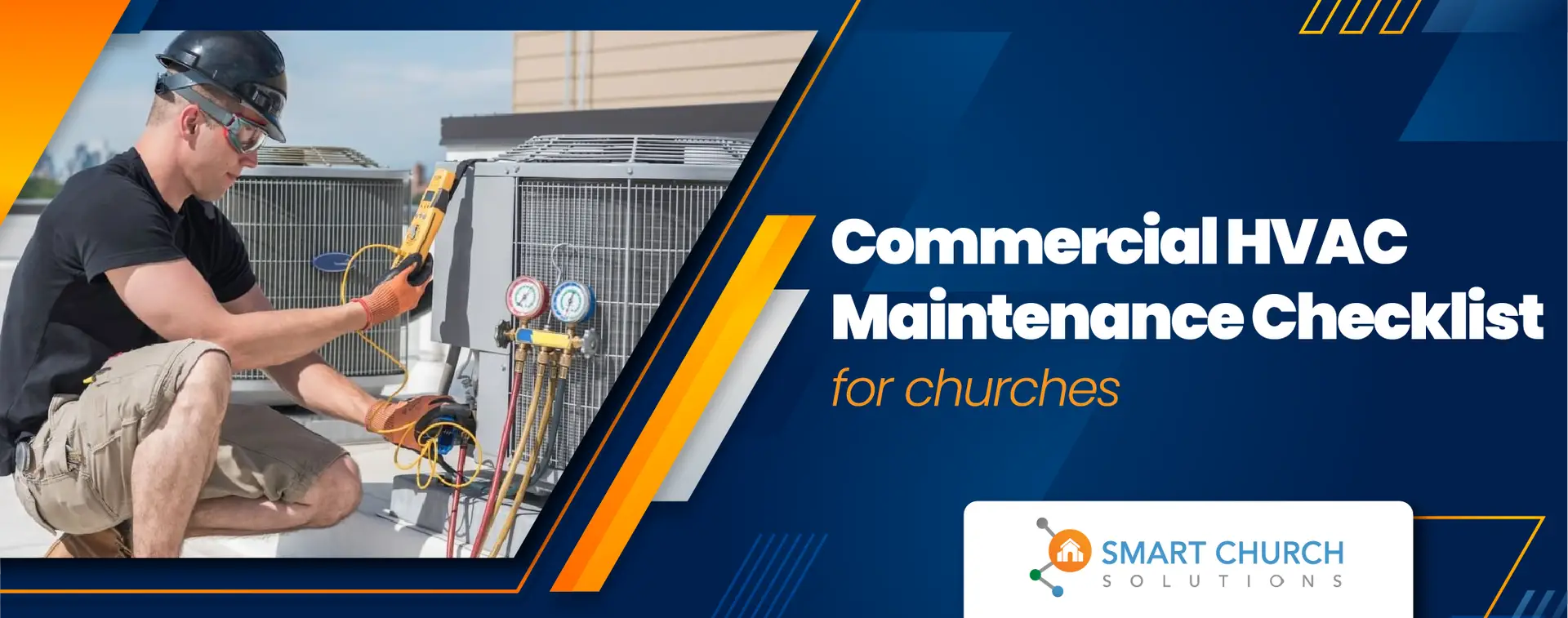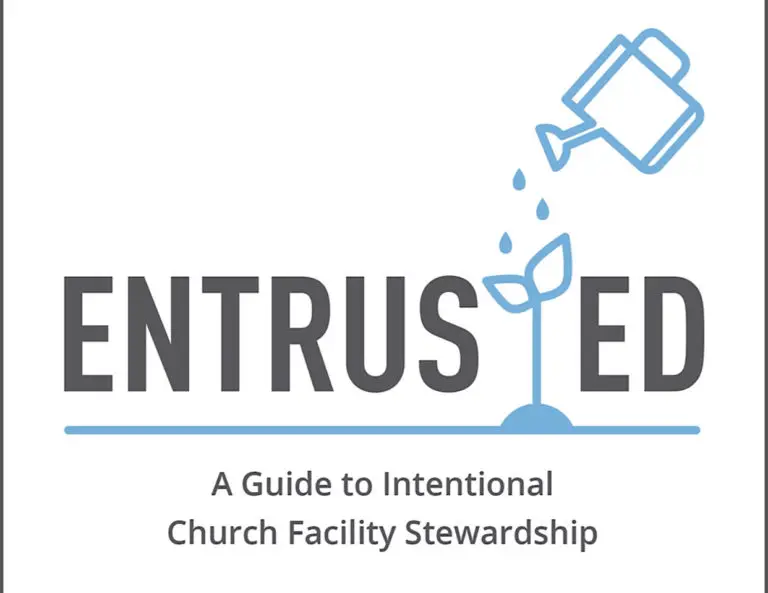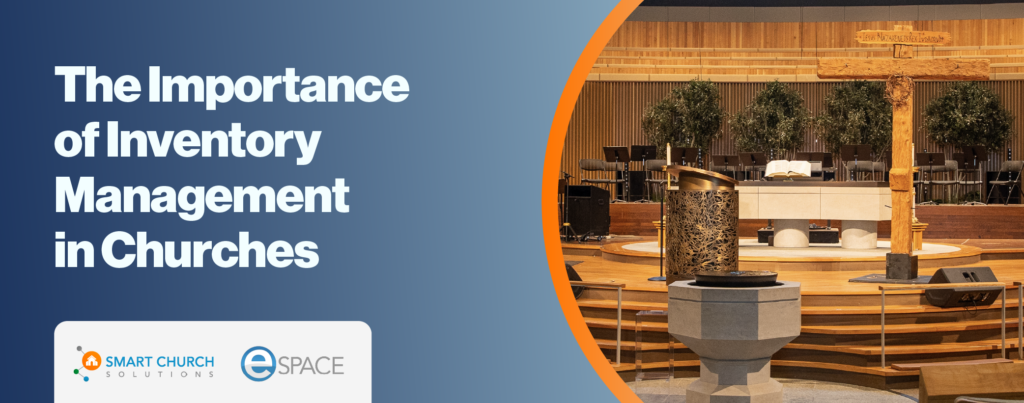In the world of church facility stewardship, ensuring the comfort and well-being of your congregation goes beyond providing spiritual nourishment. It also encompasses maintaining a safe and comfortable physical environment, and a critical component of this is a well-functioning HVAC system.
We often call our churches the “House of God,” but these spaces are far from ordinary houses. Church facilities are complex commercial structures, distinguished by HVAC systems surpassing the modest 2-5 tons commonly found in residential settings. (We are talking more like hundreds of tons.) Unlike the simplicity of a home thermostat’s settings, most church HVAC systems require multiple setpoints at different times throughout the year, emphasizing the need for specialized programming and expertise. You cannot “set it and forget it” unless you want to spend more than you should on utilities. Chillers, boilers, pneumatic controls, and potentially zoned operations, not likely found in most households, further underscore the complexity of church facilities.
Given the intricacies of these systems, maintaining them requires special attention, often from certified professionals. In light of these considerations, adopting a preventive maintenance program emerges as the best practice for ensuring the optimal functionality and longevity of the system.
In the following paragraphs, we will guide you through a comprehensive HVAC maintenance checklist tailored for churches. We will cover preventive measures for warmer and colder months, basics every facility steward can handle, and key considerations for creating a robust HVAC maintenance program.
What is an HVAC Maintenance Checklist?
An HVAC maintenance checklist is designed to supply facility stewards with a detailed inventory of each system or component requiring service. It should also include details about previous and future services.
Typically, commercial HVAC maintenance encompasses a thorough examination of the air conditioning system, heat pump, electric heater, gas furnace, and dual fuel heat pump furnace. This checklist typically includes seasonal and routine tasks, and it helps ensure that your system operates efficiently and effectively throughout the year.
Important Things to Know to Create an HVAC Maintenance Program
Creating a successful commercial HVAC maintenance program requires understanding certain critical aspects of your system. Here are a few questions to ask yourself to get started:
What Type of HVAC System Do I Have?
Commercial HVAC systems can vary based on the size of the facility, its usage, and specific heating and cooling needs. Here are just a few common types of commercial HVAC systems found in church facilities:
- Split Systems: These are a common choice for smaller facilities or individual rooms. They consist of an outdoor condenser unit and an indoor evaporator unit.
- Packaged Systems: Packaged systems house all components, including the compressor, condenser, and evaporator, in a single unit. They are typically placed outside the building.
- Variable Air Volume (VAV) Systems: These allow for individual airflow control to different zones within a building. Each zone has its own thermostat, providing flexibility in temperature control.
- Boiler Systems: These use hot water or steam to heat the building. They are often paired with radiant heating systems.
- Chillers: Chillers can use air or water to help reject heat from the refrigerant which in turn cools down water to a temperature range of around 42 degrees. Some chillers use a glycol mix to make the water colder, which is not typical. Chillers and boilers are frequently used together in with 2-pipe or 4-pipe systems.
Know the Unit’s Model and Serial Number
The location of the model and serial numbers can vary depending on the HVAC system’s make and model. If you need help finding this information, we recommend consulting the user manual or contacting the manufacturer’s customer support. However, here are common places to locate the model and serial numbers:
- Nameplate or rating plate
- User manual or documentation
- Unit components
- HVAC manufacturer’s website
How Old is the System?
Understanding the age of your HVAC system helps anticipate potential issues and plan for replacements. You can typically find the age by looking at the nameplate information, serial number, or manufacturer’s website. As a reminder, a standard DX system (i.e. heat pumps and package units) has a manufacturer’s suggested life expectancy of 15 years and chillers/boilers should have a useful life of 30-35 years.
The availability of information can vary depending on the manufacturer and the unit itself. If you encounter difficulties, consider contacting the manufacturer directly or consulting with a qualified HVAC professional to assist in determining the age of the commercial HVAC unit.
For planning and life cycle calculation purposes, a fifteen-year anticipated service life is a safe range for most commercial HVAC equipment. This will vary, and while the unit may still function after fifteen years, the efficiency of the unit will continue to deteriorate. – Nathan Parr, Facility Stewardship Specialist
When was the HVAC System Last Serviced?
Similar to the point above, tracking the date of the last professional service ensures your system receives regular maintenance, which is essential for optimal performance. Keeping track of the last service date is critical to schedule timely maintenance. An annual service is the minimum time interval for service; two to four times a year is ideal.
Preventive Maintenance Checklist for Your Church HVAC System
To help you stay on top of your HVAC system, we have created a checklist to utilize throughout the year. As a caveat, unless you’ve been blessed with a facilities team with training in HVAC maintenance, most of the items listed below are best left to professionals. We encourage facility stewards to ensure appropriate maintenance tasks for your equipment are included in an HVAC service contract with a trusted vendor. The following lists are not meant to be exhaustive but rather a primer on some of the most critical elements in maintaining your HVAC systems.
“For tasks requiring less technical skill, I worked with my HVAC vendor to train my facilities technicians on proper methods for performing these tasks to ensure continued operation of the equipment and limit downtime.” – Patrick Hart, Facility Stewardship Specialist
📋 Shift from reactive to proactive maintenance! Our Preventive Maintenance Checklist helps you safeguard your church’s most valuable assets by catching small issues before they become costly problems. Download your free a free copy here.
Warmer Month Maintenance (Spring and Summer)
- Check humidity levels
- Clean condenser and evaporator coils
- Check for signs of gas leaks
- Check drain lines for clogs
- Clear standing water from the drain pan
- Replace worn pulleys and belts
- Change batteries
- Clean or replace filters
- Clean or replace fan blades
- Check thermostat functionality
- Ensure proper airflow
- Check refrigerant levels
- Check electrical connections
- Lubricate motor bearings and moving parts
- Clean debris or dust around the unit
- Inspect the unit cabinet for damage
Colder Month Maintenance (Fall and Winter)
- Clean or replace filters
- Inspect burner assembly
- Check heat exchanger and heating elements
- Check for carbon monoxide or gas leaks
- Inspect electrical connections for damage
- Lubricate motor bearings and moving parts
- Inspect belts for damage
- Check drains for blockages
- Check gas pressure
- Test thermostats
- Test and check the heat pump
- Check ductwork and vents
- Clean and check the flue system
- Check the flue system’s attachment to the furnace
HVAC Basics Every Facility Steward Can Do
While some HVAC tasks require professional expertise, there are basic maintenance steps that every facility steward can handle:
- Maintain clear access: Ensure the area around both the outdoor and indoor units is clear of debris and accessible for maintenance.
- Proper labeling: Label all equipment with the area it serves and the system’s individual components.
- Check insulation: Ensure refrigerant lines have intact insulation to prevent energy loss.
- Filter information: Write the filter size for each unit and track the date of the last change.
- Operational testing: Verify the unit cools or heats as needed when operated.
How eSPACE Can Help
To streamline your HVAC maintenance program, consider leveraging eSPACE, Smart Church Solutions’ comprehensive facility management software.
eSPACE provides tools to track assets, schedule preventive maintenance tasks, generate performance reports, and make informed decisions about your HVAC system. It empowers facility stewards to optimize asset performance, maximize resource utilization, and minimize costs.
⏳ How much time do you spend adjusting thermostats each week? eSPACE automates HVAC scheduling to save you hours and reduce energy waste. See how it works—Schedule a free call!
Do two things real quick for us:
- Think about how many hours a week you or your team spends adjusting your thermostats or HVAC controls based on events scheduled that week. We have customers that were spending 4-6 hours a week.
- If you could save that time by integrating your HVAC controls into your event scheduler, what else could you focus on that either fulfills your mission or better steward what God has entrusted to you?
Bottom Line: Church facilities demand specialized care. Don’t wait until the next HVAC emergency; take proactive steps today. Get a demo of eSPACE to explore how it can enhance your facility stewardship and ensure your assets contribute to the long-term success of your organization.








